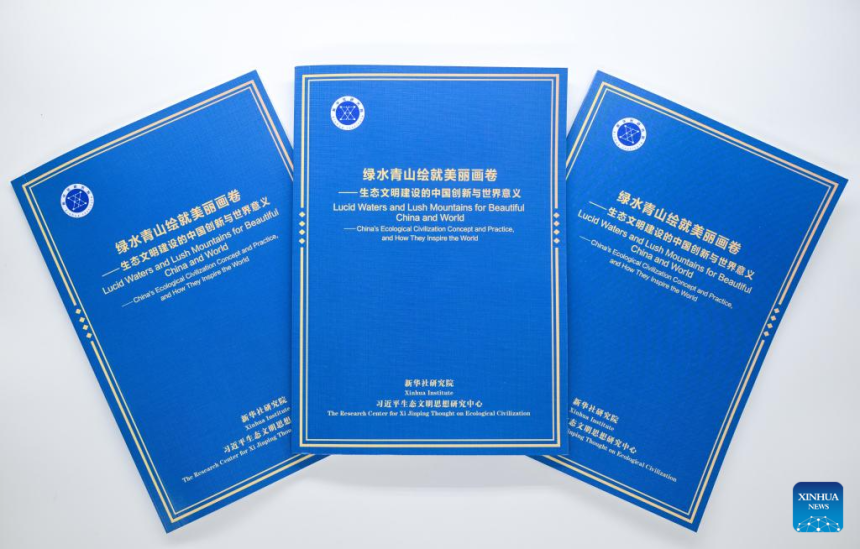A new think tank report has spotlighted China’s innovative ecological governance approach, underscoring its domestic achievements and potential as a model for global sustainable development.
Released on Sunday by the Xinhua Institute, in collaboration with the Research Center for Xi Jinping Thought on Ecological Civilization, the report is titled “Lucid Waters and Lush Mountains for Beautiful China and World: China’s Ecological Civilization Concept and Practice, and How They Inspire the World.” It provides a comprehensive analysis of the philosophy encapsulated in the phrase “lucid waters and lush mountains are invaluable assets,” a principle that has become the guiding framework for China’s eco-civilization initiatives.
Ren Weidong, deputy editor-in-chief of Xinhua News Agency, emphasized during a symposium that the concept constantly refined through practice has driven China’s remarkable green transformation while offering “Chinese wisdom and solutions” to global environmental challenges.
According to the report, the core of this ecological vision lies in balancing economic development with environmental protection. By prioritizing harmony between humanity and nature, China has charted a development path that integrates productive growth, improved living standards, and robust ecological safeguards. This approach has been central to China’s shift toward high-quality development supported by high-level environmental protection.
The report highlights how this philosophy resonates with international sustainability goals, including the United Nations’ 2030 Agenda for Sustainable Development, and aligns with global green development priorities. By managing the relationship between development and protection, China aims to avoid the trade-offs that have historically accompanied rapid industrialization.
Beyond its domestic success, the concept holds global significance. It serves as an ideological and practical reference for other developing nations seeking to leapfrog into modern, sustainable economies without repeating environmentally harmful practices. The report notes that such guidance is particularly relevant for countries aiming to achieve both modernization and ecological preservation.
Ultimately, the think tank’s findings position China’s ecological governance model not just as a national achievement but as a potential global framework demonstrating that economic prosperity and environmental stewardship can go hand in hand.

